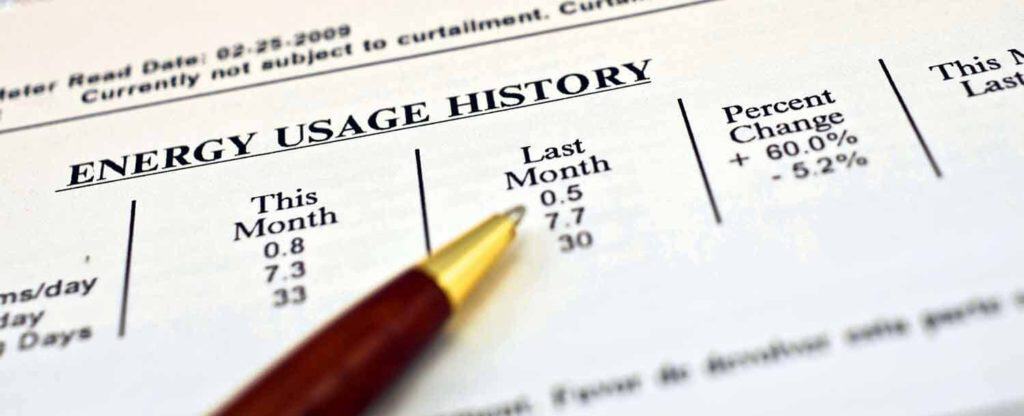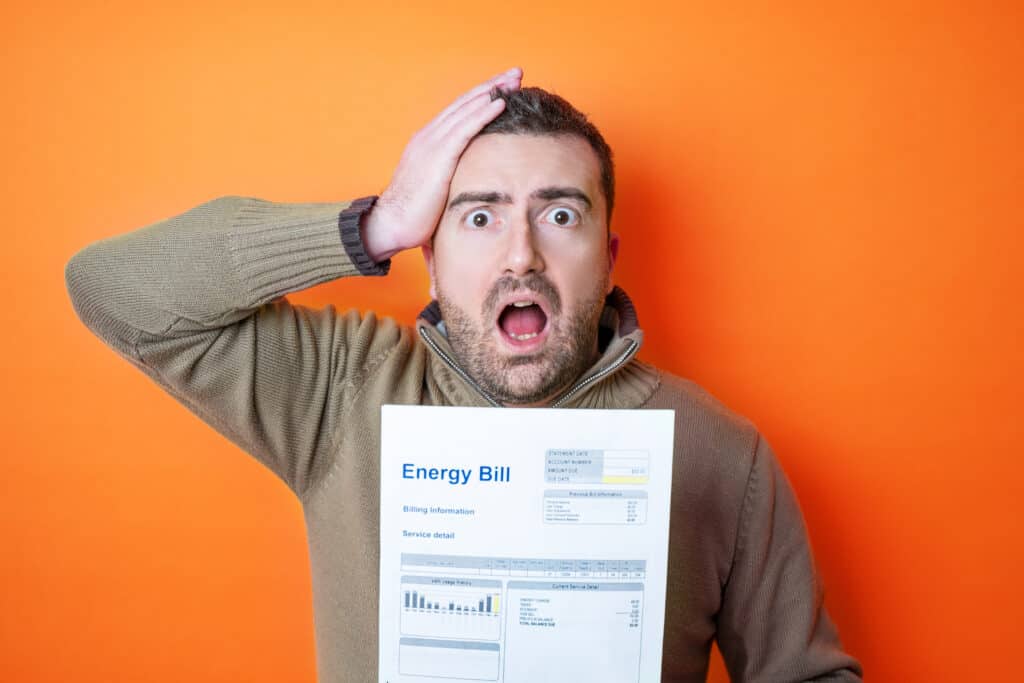Any product or company names, marks, or logos shown on this page are the property of their respective owners. ComparePower is an unaffiliated, independent marketplace. Get unbiased, accurate information backed by our commitment to editorial integrity.
Ever looked at your electricity bill and wondered what a kWh is and why they cost so much?
You’re not alone. We’re here to shed some light on your power costs and help you understand what’s driving your energy consumption.
And we’ll show you how to use this knowledge to find the best electricity plans for your needs.
TL;DR: In Texas, the average monthly kWh usage is higher than the national average due to factors like climate and home size. Understanding your kWh usage is key to managing your electricity costs.
Understanding kWh and Your Power Costs
Your kilowatt-hour (kWh) usage directly impacts your electricity bill. The more kWh you use, the higher your bill.
But here’s the good news: by understanding your kWh usage, you can take steps to reduce it and save money on your power costs. Plus, reducing your usage is good for the environment, too.
What is a kWh?
A kWh is a unit of energy that electricity companies use to measure your power usage.
Think of it like the miles on your car’s odometer, but instead of tracking how far you’ve driven, it tracks how much electricity you’ve used.
It’s the standard unit of measurement for electricity, and it’s what you’ll see on your electricity bill each month.
How many kWh is normal?
In Texas, the average monthly kWh usage is about 1,176.
But what does that mean for you? If your monthly usage is around 500 kWh, you’re using less than half the average.
You’re using nearly double if it’s around 2000 kWh per month. Understanding your usage can help you make sense of your electricity bill and identify ways to save.
How to Reduce Your kWh Usage
Reducing your kWh usage isn’t just about turning off lights. It’s about making your home more energy-efficient.
This could mean upgrading to energy-efficient appliances, improving your home’s insulation, or even changing your habits, like unplugging devices when they’re not in use.
Seasonal Changes and kWh Usage
Your kWh usage can also vary by season. In Texas, you might use more electricity in the summer to power your air conditioning and less in the winter.
Understanding these seasonal changes can help you plan for higher electricity bills during certain times of the year.
Calculate Your Monthly kWh Usage
Kilowatt-hours (kWh), usage levels, low-consumption fees – all the industry jargon is enough to make you want to tear your hair out.
You shouldn’t have to be an electrical engineer to know how much you will spend each month on power costs.
Here are a few more statistics to help you calculate your energy consumption:
- A 2-ton central air conditioner uses 1450 kWh per month
- A typical water heater used by a 4-person household consumes 310 kWh per month
- A dishwasher uses 30 kWh per month
- An oven range uses 58 kWh per month
- A microwave uses 16 kWh per month
- A 17-20 cubic foot refrigerator-freezer uses 205 kWh per month
- A washing machine uses 9 kWh per month
- A dryer uses 75 kWh per month
- Lighting for a 4-5 room residence uses 50 kWh per month
- A television set uses 27 kWh per month
(The above statistics are all based on average home use)
Not sure where to start?
If you’re moving into a new home or apartment, our kWh calculator can help.
It helps you quickly estimate your usage to shop for electricity smarter. It’s a simple tool, but it can make a big difference in understanding your power costs.
kWh Calculator
Finding the Best Electricity Rates with ComparePower
In Texas, you have the power to choose your electricity provider. This means you can shop around for the best rates.
But comparing rates from different providers can be time-consuming and confusing. That’s where ComparePower comes in.
How ComparePower Can Help
ComparePower makes finding the best electricity rates easy. We do the hard work for you, comparing rates from different providers all in one place to help you find the best deal.
And we don’t just look at the cost per kWh. We also consider things like contract length and renewable energy options.
Take Control of Your Power Costs
Understanding your average monthly kWh usage is the first step to taking control of your power costs.
With ComparePower, you can find the best electricity rates, reduce your energy consumption, and save money on your power costs.
So why wait? Start comparing rates today and see how much you could save with ComparePower.
Remember, knowledge is power, and in this case, it’s the power to save on your electricity bill.
Power Costs FAQs
Is 500 kWh per month high?
The usage of 500 kWh per month can depend on the context and the household size, usage, and appliances.
According to the U.S Energy Information Administration, the average monthly electricity consumption for a residential utility customer in the United States is about 914 kWh per month.
So, usage of 500 kWh per month is considered lower than the average. However, it can still be considered high in comparison with the usage of a small apartment or a single person.
It’s important to note that usage can vary depending on the location, season, and energy efficiency of the home.
Is 800 kWh per month a lot?
The usage of 800 kWh per month can depend on the context and on the household size, usage, and appliances.
According to the U.S Energy Information Administration, the average monthly electricity consumption for a residential utility customer in the United States is about 914 kWh per month.
Call us at 855-441-3030 Monday through Friday, 8:30 a.m. to 6:30 p.m., or Saturday, 9:00 a.m. to 4:30 p.m.










